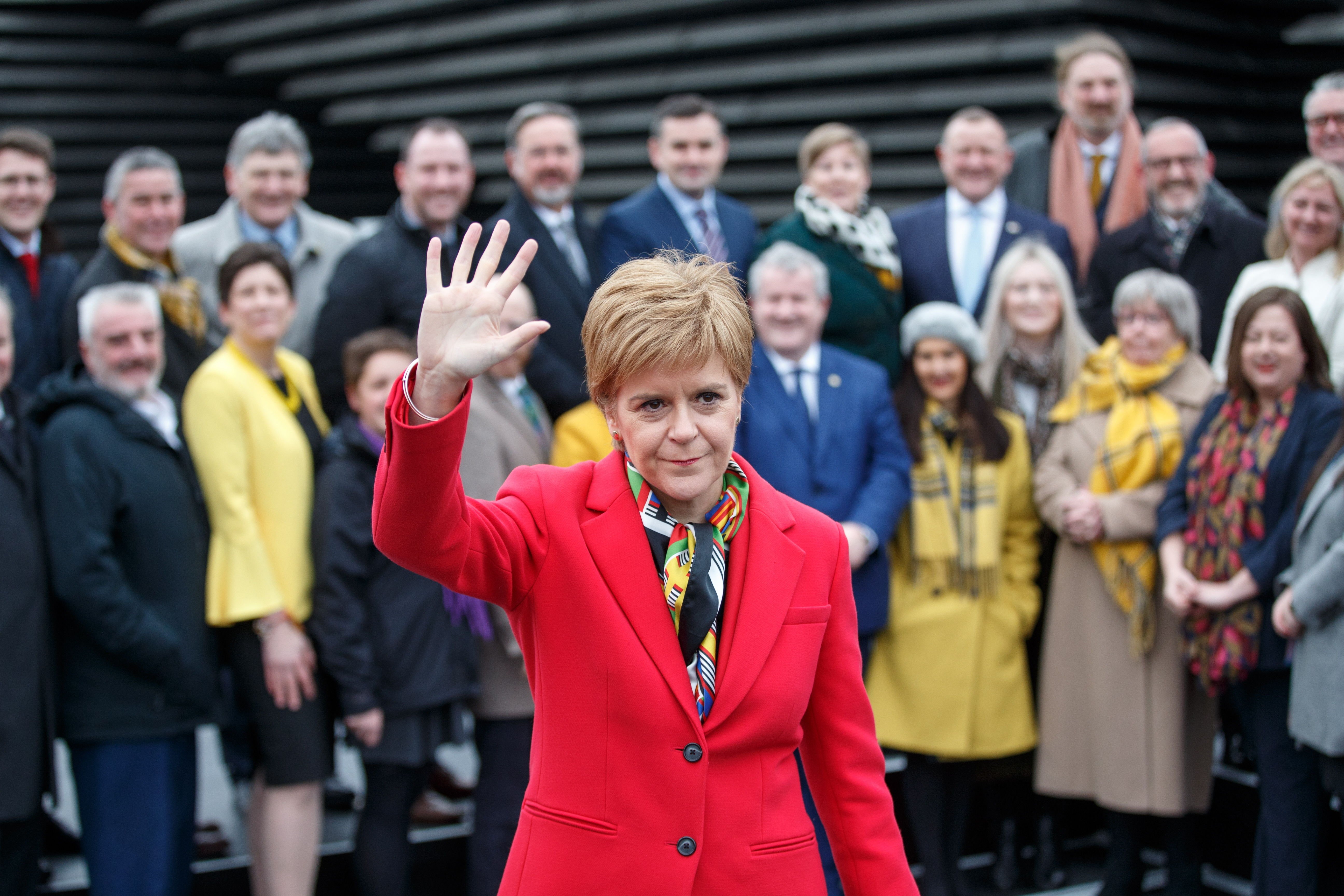Scotland's first minister Nicola Sturgeon warned British PM Boris Johnson on Sunday that he cannot keep Scotland in the UK against its will. With this statement, the leader of the Scottish National Party (SNP) has placed Scotland on a political path similar to that of Catalonia - facing a degree of confrontation with the state on the issue - after Scotland had previously held its first independence referendum by mutual agreement with the government of then-prime minister David Cameron.
Johnson and his government repeatedly stated during the election campaign that they would not consider another Scottish independence referendum, but Sturgeon's position was reinforced by the election on 12th December at which the SNP won 48 of the 59 Scottish seats in the House of Commons.
"You cannot just lock us in a cupboard, turn the key and hope that everything goes away; if the United Kingdom is to continue, then it can only be by consent," Sturgeon told the BBC's Andrew Marr Show. "Scotland cannot be imprisoned in the United Kingdom against its will," she added.
She warned Johnson that saying no to a referendum would not end the problem and to assume so was "completely wrong". She also asserted that Johnson's continued refusal to grant powers to hold a second referendum could only increase support for Scottish independence.
And Sturgeon challenged Johnson to make the case for continued union: "If he is confident about that", she said, "he should be confident enough to allow people to decide."
During the interview, Sturgeon considered that it would be a "subversion of democracy" if the SNP, having won an overwhelming victory in Scotland, was not able to exercise the mandate from voters because the Conservatives - a party "clearly defeated in Scotland" - refused to allow that mandate to be honoured. "It is just such perversion and subversion of democracy that it will not hold”, Sturgeon said forcefully.
The SNP leader argued that "Scottish voters have rejected the Tories, said no to Brexit and have made it clear that they want Scotland's future to be in its own hands." She admitted that perhaps not all SNP voters at last week's election "would be prepared to back independence", but that is a question that depends "on the people of Scotland".
"You cannot hold Scotland in the union against its will"
— BBC Politics (@BBCPolitics) December 15, 2019
Scotland's First Minister Nicola Sturgeon says the SNP's success in the general election gives her a mandate to hold a new referendum on independence
[tap to expand] https://t.co/Ntp3hde55K #indyref2 pic.twitter.com/5enRIBerlL
The result of last Thursday's UK general election - a large Conservative majority overall, but an overwhelming SNP victory in Scotland and, for the first time, a majority of seats in Northern Ireland going to republican parties - represents a head-on clash between different nationalist groups. The Scottish struggle, like that of Catalonia, is for independence, while Irish republican parties are calling for a referendum on the island's reunification.
But unlike the situation in Catalonia, Sturgeon has a virtual monopoly on pro-independence support among Scots and does not have to reach agreement or consult with any other party on the strategy to secure a second 'Indyref'. The Scottish Conservatives - who campaigned against holding a second independence vote - lost more than half of their Scottish strength, going from 13 MPs to six.
Sturgeon, in fact, has already stated that this coming week she will officially table the document requesting the new independence consultation. Scottish newspaper The National has this Sunday speculated that the transfer of powers which the first minister is to request from London for the proposed referendum might be permanent rather than temporary.
Torra, pleased
Catalonia's president, Quim Torra, showed his satisfaction that Catalonia and Scotland now found themselves on similar paths. He even paraphrased Sturgeon's speech:
No pots mantenir Catalunya dins d’Espanya contra llur voluntat. https://t.co/Ib9CUV3dkF
— Quim Torra i Pla (@QuimTorraiPla) December 15, 2019
"You cannot hold Catalonia in Spain against its will," Quim Torra posted in his official Twitter account.

